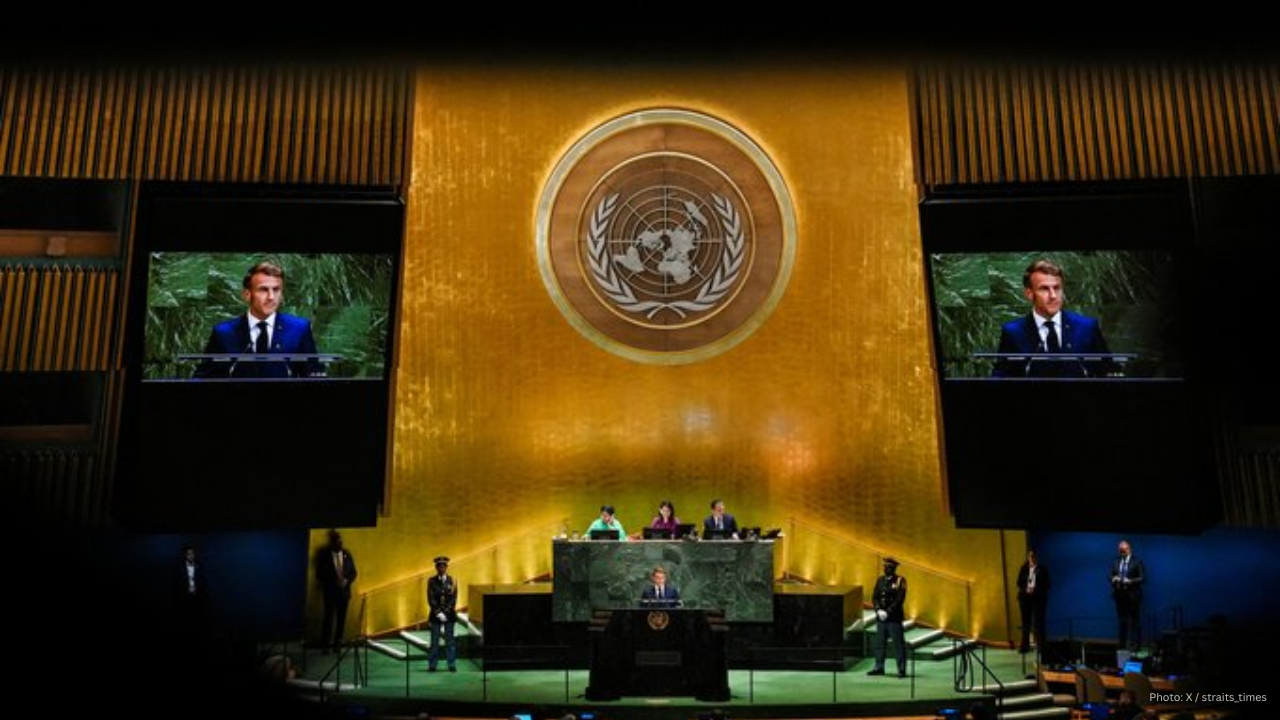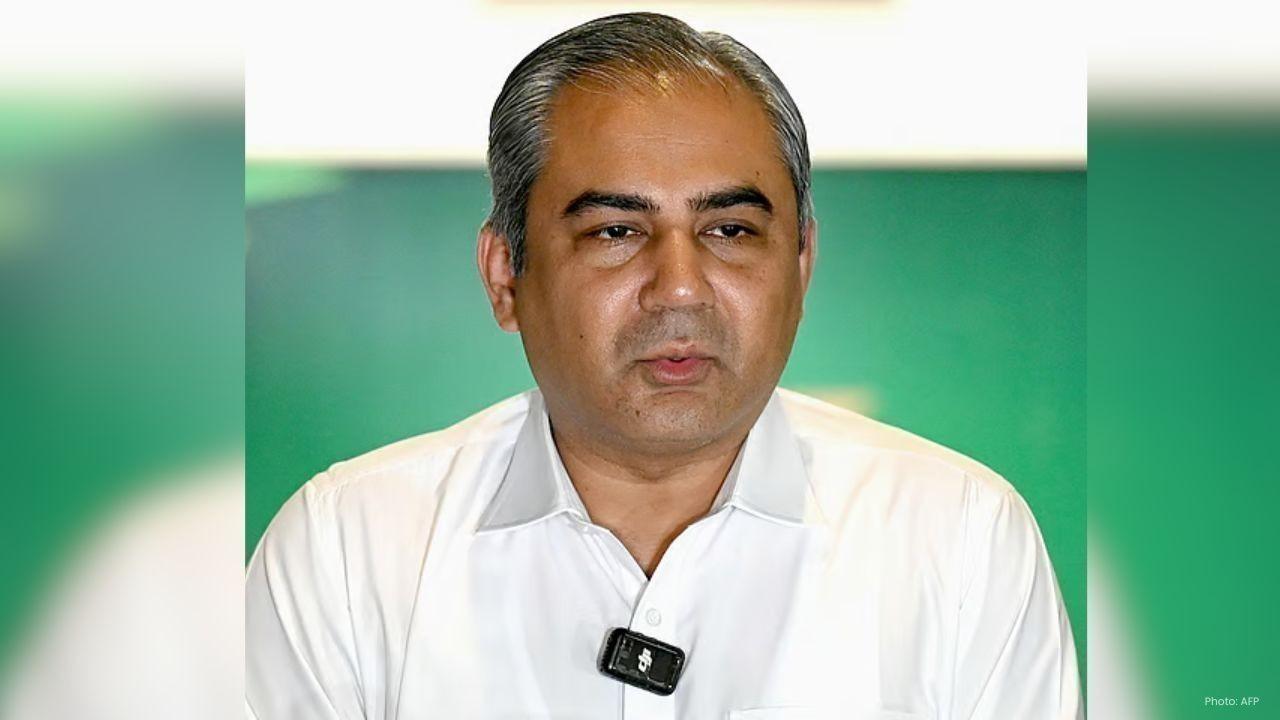
Post by : Naveen Mittal
The U.N. General Assembly turned into a diplomatic battleground this week as several U.S. allies, including France, Britain, Canada, and Australia, backed the recognition of Palestine. Their move signaled frustration with Washington’s handling of the Israel-Gaza conflict and put fresh pressure on President Donald Trump’s Middle East strategy.
President Trump, who has repeatedly portrayed himself as a peacemaker, now finds himself sidelined. Allies’ recognition of Palestinian statehood not only undermines his credibility but also highlights Washington’s shrinking influence in shaping the outcome of the war.
The situation escalated after Israel’s strike on Hamas leaders in Doha, which undermined U.S. mediation efforts. Since then, Israel has intensified its ground operations in Gaza, while Trump’s administration has refrained from applying significant pressure on its closest ally.
French President Emmanuel Macron directly challenged Trump’s leadership, stating that if he truly sought international recognition, he should prioritize ending the Gaza war. His remarks underscored the growing impatience among global leaders who view U.S. policy as ineffective.
Despite criticism, Trump engaged privately with leaders from Saudi Arabia, the UAE, Qatar, Egypt, Jordan, Turkey, Indonesia, and Pakistan. He reportedly pushed for a plan to govern Gaza without Hamas and discussed involving regional security forces for post-war stability.
On the public stage, Trump remained steadfast in backing Israel. He warned that recognizing Palestine could “encourage continued conflict,” maintaining his long-held stance. However, European allies argue that recognition is vital to keep the two-state solution alive.
The push for Palestinian statehood also threatens one of Trump’s signature achievements—the Abraham Accords. Talk of annexation in the West Bank has unsettled Gulf states, with the UAE even warning it may withdraw if Israel proceeds unchecked. Analysts believe such moves would make Saudi Arabia’s participation in the accords nearly impossible.
As allies move forward with their own diplomatic agendas, Trump’s Israel policy faces its toughest test. The gap between Washington and its traditional partners raises questions about the future of U.S. influence in the Middle East.
Palestine, Israel, Trump, U.S. Foreign Policy, Middle East Diplomacy, Gaza, United Nations










Sinner & Swiatek Shine at China Open: Semifinal Spots Secured
Jannik Sinner and Iga Swiatek advance to the semifinals at the China Open. Read about their victori

Michigan church attack kills 4, injures 8 in shocking violence
A gunman drove into a Michigan church, fired shots, set fire, killing 4 and injuring 8 before police

Moldova’s Pro-EU Party Secures Majority in Key Vote
Moldova’s pro-European PAS wins a strong majority in the parliamentary election, weakening pro-Russi

Gabriel’s late header gives Arsenal 2-1 win at Newcastle
Arsenal snatch dramatic 2-1 win at Newcastle as Gabriel heads the winner in stoppage time; Merino eq

Air France Flight 447 Trial Opens 16 Years After Tragic Crash
Sixteen years after the Air France Flight 447 crash, a trial opens against Air France and Airbus. Le

Europe close to Ryder Cup win after strong weekend play
Team Europe is on the verge of winning the Ryder Cup, showing great form in Italy and needing only a